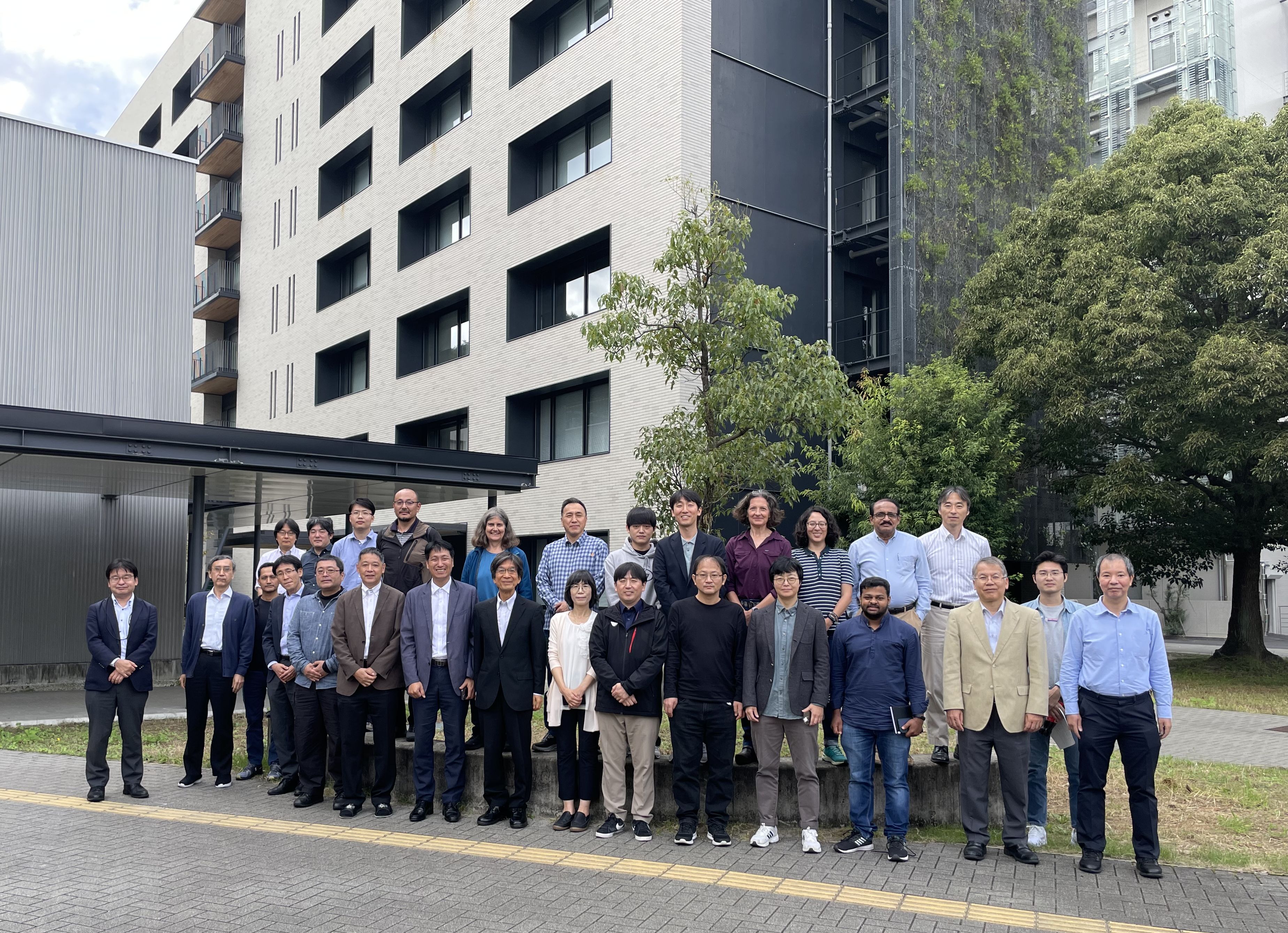NEWS
Korea-Japan Space Weather Workshop 2023
ISEE and KASI (Korea Astronomy and Space Science Institute) co-hosted the Korea-Japan Space Weather Workshop 2023 at Nagoya University on Oct. 11, 2023. The ISEE/KASI bi-lateral series workshop has been held to develop international collaboration for space weather study. The agenda of the workshop is as follows.
Korea-Japan Space Weather Workshop 2023
Date: Oct. 11 (Wed), 2023
Room: ISEE bld.II 3F-Hall
Agenda
9:20-9:30 Opening K Kusano, K. Shiokawa, K-S Cho
9:30-9:50 KASI's ongoing studies to understand both small-scale and large-scale solar eruptions Sung-Hong Park
9:50-10:10 Progress on the 'First Flare / Last Flare' Prediction Challenge KD Leka
10:10-10:30 KASI’s space-based geospace observation missions: SNIPE, ROKITS, and ATHENA Young-Sil Kwak
10:30-10:50 Acceleration of relativistic electrons in the outer radiation belt: Arase observations and simulation Yoshizumi Miyoshi
10:50-11:10 Coffee
11:10-11:30 Research on Solar Radio Flare in KASI Sujin Kim
11:30-11:50 Recent Solar Flare Researches with NoRH at ISEE Satoshi Masuda
11:50-12:10 Recent researches on the upper atmosphere and ionosphere in KASI Tae-Yong Yang
12:10-12:30 Results from the PWING project and introduction of the new PBASE program for studying dynamics of the inner magnetosphere using ground and satellite measurements and modeling Kazuo Shiokawa
12:30-13:40 Lunch
13:40-14:00 Open New Horizon with L4 Mission: Vision and Planning Kyung-Suk Cho
14:00-14:20 Next-generation solar wind observation system of ISEE Kazumasa Iwai
14:20-14:40 Decades of Solar Wind Structure and Its Origins: Insights from IPS Observations and PFSS Analysis Ken-ichi Fujiki
14:40-15:00 Data-driven MHD simulation of an inclined solar eruption Kang Yeongmin
15:00-15:20 Coffee
15:20-15:40 Stepwise development of the auroral onset arc and the near-Earth magnetotail associated with substorm onsets Yukinaga Miyashita
15:40-16:00 Dynamics of Ionospheric Outflow During Storm Main Phase Lynn Kistler
16:00-16:20 Ionospheric disturbances associated with the 2022 Hunga Tonga‑Hunga Ha’apai volcanic eruption as seen in GNSS-TEC and Arase satellite observation data Atsuki Shinbori
16:20-16:40 A double-thin-shell model for studying nighttime MSTIDs by using dense GNSS observations over Japan Weizheng Fu
16:40-17:00 Discussion & Closing K-S Cho, K Kusano
